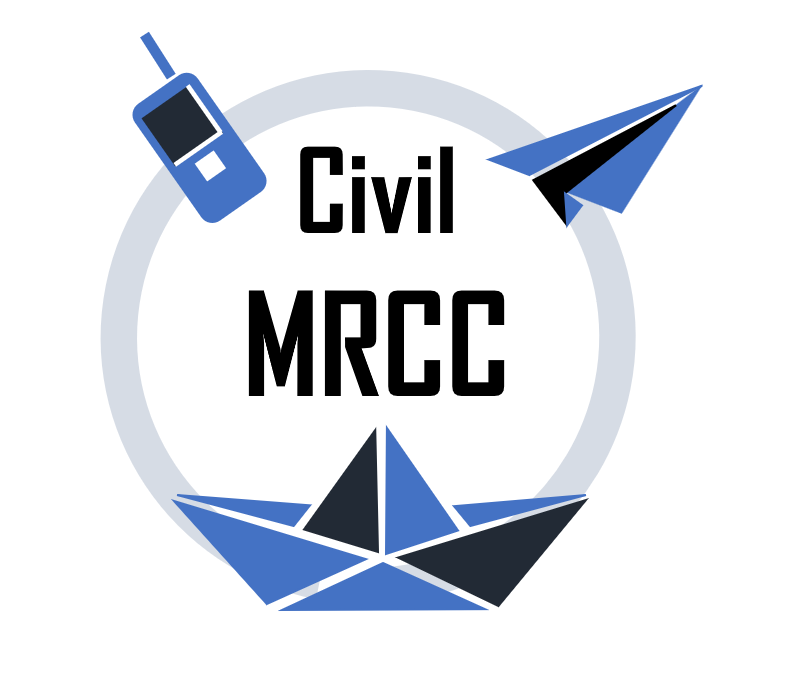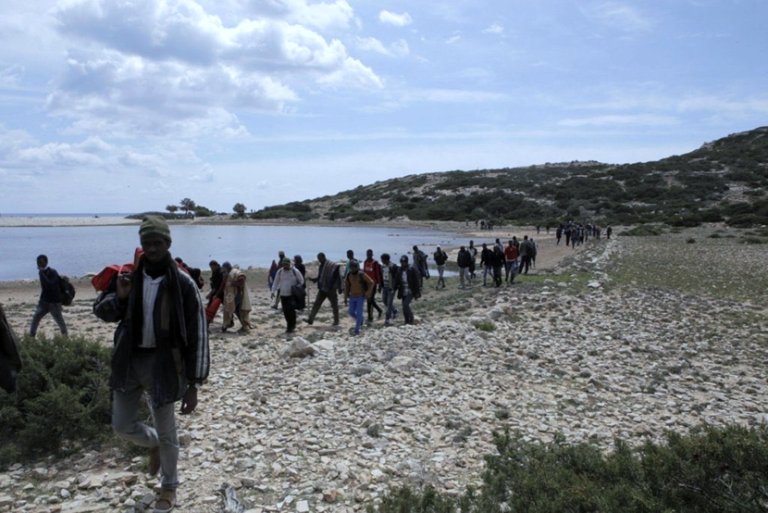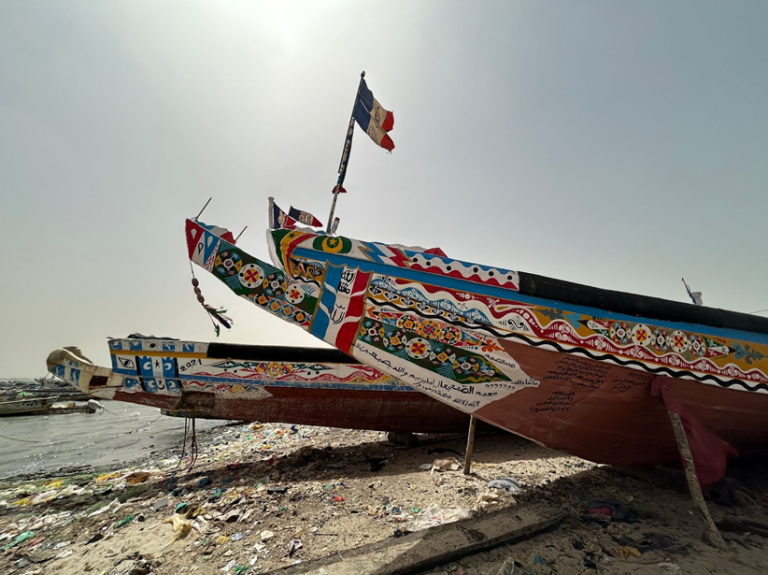In the previous edition of ECHOES, we highlighted the growing concerns regarding a potential collaboration between Italy and Eastern Libya, which could lead to an anticipated increase in pullback operations within the “SAR3” region. Shortly after the visit of the Eastern Libyan delegation to Rome, our concerns were validated. On May 24, Alarm Phone received a distress call from 27 individuals aboard a small boat that had departed from Benghazi (SAR event AP0701). While the boat was still navigating in the Libyan SRR, a merchant vessel named LONG BEACH coordinated by IMRCC came to their rescue. This incident differs from the GRIMSTAD case on April 29, described in the previous edition of ECHOES, where the MRCC in Rome publicly disclaimed any responsibility for the refoulement: in the press release issued on May 25, the Italian MRCC stated that they had assumed the coordinating role in the refoulement of the rescued individuals, who were subsequently pushed back by the crew of the LONG BEACH.
Even if the boats crossing the “SAR3” region finally manage to reach the Maltese SRR, they still face significant challenges due to the systematic non-assistance policy enforced by the MRCC in Valletta. The officers in Malta persist in instructing merchant vessels to refrain from rescuing distressed boats, particularly if they are not adrift. This was once again evident in the case of 36 individuals who contacted Alarm Phone on May 2 (SAR event AP0630). Despite the cargo ship MARCO POLO being close to them, it finally proceeded without intervening. In a VHF communication with the civil aircraft Seabird, the bridge of the merchant vessel confirmed that Malta instructed them not to rescue the boat since it was not deemed to be in distress. Fortunately, the crew of Geo Barents, under the coordination of the ITMRCC, was able to reach the 36 individuals and safely bring them aboard the rescue ship, providing the assistance they needed.
Furthermore, in addition to the lack of assistance, a highly perilous pushback operation took place. On the afternoon of May 23, 2023, Alarm Phone received a distress call from a boat with about 500 people onboard, who departed from Tobruk, Libya. Their boat had suffered an engine failure, leaving them adrift 30 nautical miles into the Maltese SAR region. Despite the presence of several merchant vessels in close proximity, none of them intervened to offer assistance. The situation escalated during the night when a merchant vessel narrowly avoided colliding with the distressed boat, indicating a failure by RCC Malta to inform nearby ships of the drifting boat. Despite subsequent search efforts by Seabird2 and Life Support, the missing boat remained elusive. Shockingly, it was later discovered that the boat, along with its approximately 500 occupants, had been forcibly towed back over 330 km to the port of Benghazi in Libya—an illegal and highly dangerous operation.
The role of the JRCC in Valletta in these refoulement operations remains not completely defined. However, shortly after this incident, on May 29 and 30, a Maltese diplomatic delegation, comprising the AFM Commander and Malta’s Special Envoy for Migration, engaged in discussions with key authorities in Benghazi. The primary focus of these talks revolved around the security challenges that both Malta and Libya face in the region, particularly regarding “irregular migration”. During the meetings, the delegations reached an agreement to enhance military cooperation between their respective navies and armed forces. This cooperation aims to prevent unauthorized crossings and reinforce the border blockade from Eastern Libya to the Maltese area. However, it also evoked the potential establishment of a direct air connection between Benghazi and Malta to consolidate commercial exchanges in the region.
On June 12, the civil aircraft Seabird1 witnessed the completed interception of 48 people by the Tareq Bin Zeyad, a fast middle-sized boat associated with the Libyan navy based in Benghazi. The involvement of this asset was reported during another case of refoulement, but the precise documentation of its role could not be obtained at that time. The same asset, Tareq Bin Zeyad, was once again involved in a pushback operation of a fishing vessel carrying 250 people who had already reached the Malta SRR. Seabird2 could document the interception on July 9: the merchant vessel GAZ VENTURE was heading towards the distressed fishing vessel, awaiting instructions as confirmed by the bridge of the cargo ship through VHF communication with Seabird2 crew. However, the JRCC in Valletta instructed the merchant vessel to leave the scene, stating that operations would be handled under their coordination. Nevertheless, it was once again the Tareq Bin Zeyad that approached the distressed fishing vessel and forcibly returned the 250 individuals to Libya. Thereby, it disregarded the clear order from the AFM aircraft present at the scene, which had explicitly stated the lack of coordination by competent authorities and commanded them to immediately abort the operation.
These pushback operations conducted from the Malta SRR seem to have a significant impact on migration routes, as reported by some groups in Eastern Libya. It seems that these events prompted other boats to circumnavigate the Malta SRR and seek alternative paths, resulting in an increased flow through the Greek SRR. However, tragically, the Greek maritime authorities perpetuate their much documented hostile and criminal attitude towards the boats crossing the Mediterranean, leading this time to a dramatic shipwreck that claimed the lives of over 600 people. A dedicated section on this event has been included in this edition.
The outcome of the boats crossing the “SAR3” region, though, is still very unpredictable, as the recent cases involving the merchant vessels VALPIAVE, MAERSK VALLETTA, and IBLEA confirm. On June 24, the merchant vessel VALPIAVE, carrying an Italian flag, rescued 47 individuals in Libyan territorial waters, after Alarm Phone alerted the insurance company the day before, while the ship was sailing close to the distressed boat. The VALPIAVE transferred the rescued individuals to an Italian coast guard vessel, which disembarked them at the port of Pozzallo. Similarly, on June 26, the container ship, MAERSK VALLETTA, responded to a distress call from a small boat carrying about 25 people in international waters that the civil aircraft Seabird 2 spotted the previous day. The MAERSK VALLETTA confirmed to have been instructed by the Italian MRCC to rescue the distressed individuals. On the same day, Alarm Phone contacted the company and insurance of the chemical tanker IBLEA regarding a boat carrying around 100 people that departed from Tobruk and experiencing heavy distress. The MRCC in Rome coordinated a rescue operation and instructed the tanker to take the people in distress on board and head to Italy for disembarkation. All the people rescued in these operations were later disembarked in Pozzallo, Sicily, after being transshipped by Italian Coast Guard units.
The fate of boats departing from Eastern Libya and crossing the SAR3 region remains highly unpredictable, especially prior to reaching the Italian SRR. The recent SAR events in this region prompt a crucial reflection on the potential role that civil organizations may have played, if any, in influencing the outcomes of these cases. It is essential to assess the impact of civil actions within this context and consolidate a comprehensive strategy to effectively address future events in the region. By analyzing our involvement and understanding the complexities of this region, we can strive to enhance our impact and provide better support for those on the move.

Sea Watch, A ship of the Libyan Tarek Ben Zayed militia during a push-back in June 2023 photographed from aboard the Sea-Bird 2
Article published in Echoes#7 – Moving on.
By Alarm Phone



